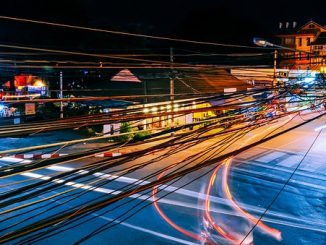
In recent years, major technological advances in the digital domain focus attention and investment: cloud applications, mobile applications, Internet of things etc …
Their deployment in the area of the city stands out as an inevitable trend and opportunities seem an inexhaustible source of innovations.
In parallel, digitalization, automation and computerization of large urban applications (energy, transport, waste treatment, water distribution etc …) seem to provide an answer to various challenges faced by modern cities, always larger and more numerous.
In the wake of these technological movements, applications and technology experts have become important to explain how applications are changing and the associated opportunities in the market, to plan and design the corresponding developments.
The growing excitement around emerging technologies has sometimes move them to the foreground. Some experts, supported by large organizations to which they belong, have even presented as experts from the city of tomorrow, suggesting that the city of tomorrow would be defined as a vast aggregate of technological solutions (including smart buildings, smart transportation, smart parking, smart public lighting)
I think we are wrong. The design of the city has always been and will always be an inclusive and global initiative, taking into account social and societal issues, economic issues as well as technical stakes. This design is for the specialists that are city planners.
They have to understand better and better how technologies can impact large cities to better rely on them; the respective experts have to support them in this movement, by being included in multidisciplinary teams to facilitate and modernize the design of future urban technical applications.
Thus the design of the city of tomorrow will not be dictated by technology but the technology that is already available will help to make cities more livable for residents, more attractive and more efficient.



Leave a Reply